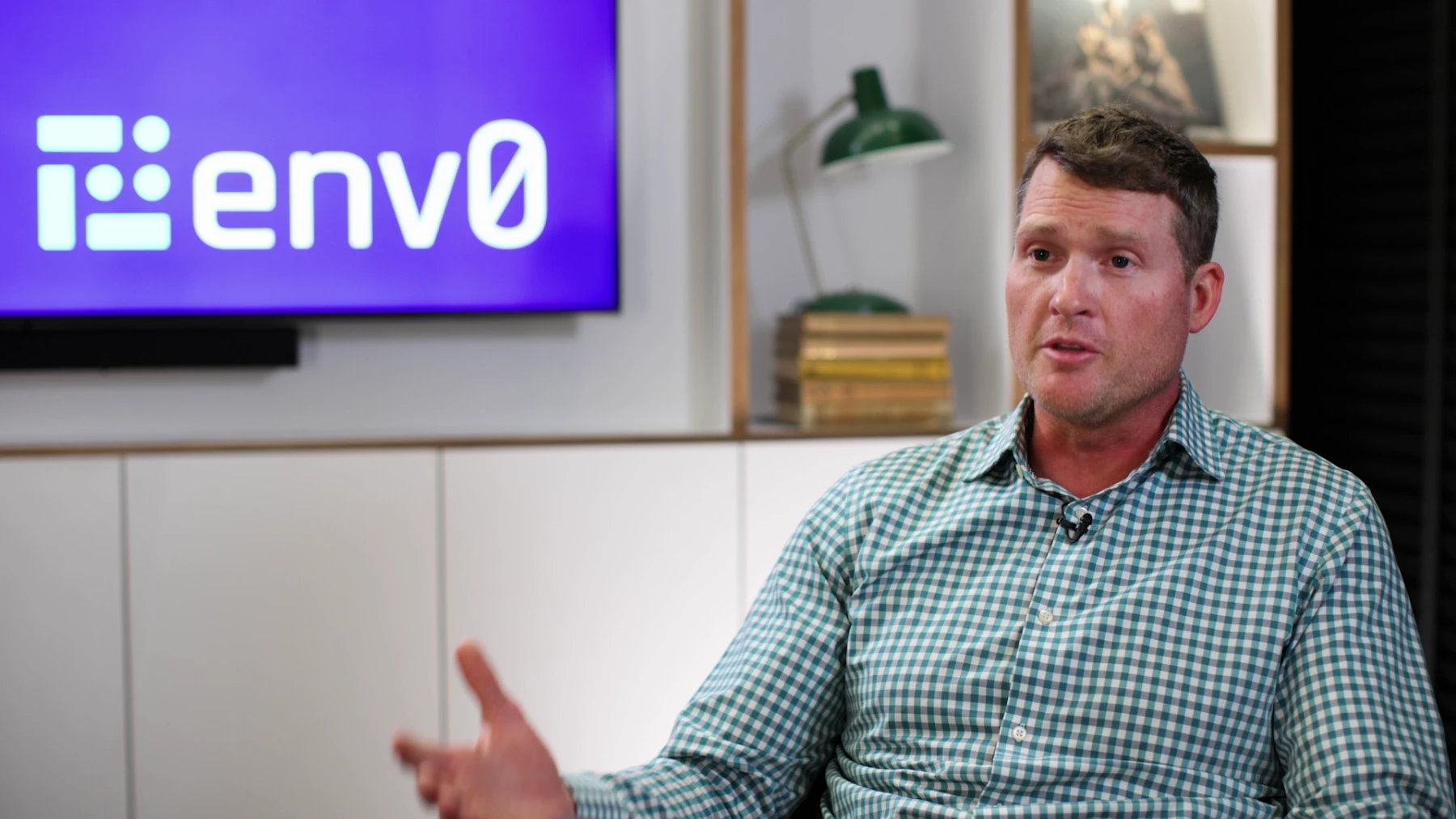SumerSports Adds Developer Self-Services, Streamlines Complex Deployments

env0 was a game-changer for our infrastructure needs. It has allowed us to centralize our Terraform runs and ensure efficient collaboration across our team... When we got our bearings, we could chain environments together and have everything deploy in a sequence that makes sense.
- Manual ClickOps model using Azure Bicep resulted in slow deployments
- Lack of centralized infrastructure automation and control
- No VCS for infrastructure change management led to insufficient documentation
- Potential inefficiencies due to frequent unsupervised deployments
- Adopted env0 for automated centralized IaC management
- Implemented an Atlantis-like flow to align with GitOps best practices
- Enhanced control by modularizing Terraform with env0 Workflows
- Accelerated deployment times for rapid provisioning
- Ensured reliability during frequent infrastructure updates
- Scaled infrastructure cost-effectively while promoting best practices
Background
SumerSports is a data company that is reshaping how professional and collegiate sports teams build their rosters. Their advanced, data-driven platform provides teams with essential insights and tools to make informed decisions while adhering to salary cap constraints. The platform also serves the NCAA, offering guidance on the transfer portal and more.
Founded with the mission of bringing data-driven decision-making to the forefront of sports management, SumerSports has experienced rapid growth since its inception and is positioned to become a major player in the sports analytics industry.
Challenge
SumerSports' success relies on its ability to analyze large quantities of data quickly. As Andrew Nemirof, Head of IT at SumerSports, explains: "A lot of people try to do this and fail because of the cost. You have to build fast and handle data modeling for all the NFL metrics and other sports leagues—it's a lot to manage."
To support their complex data models and large amounts of data, the SumerSports team deploys new infrastructure every day. Given the critical nature of their service, the company could not afford any infrastructure failures.
Without a DevOps team and without using a version control system (VCS) to deploy the infrastructure, the team relied on manual deployments with Azure Bicep. While functional, this approach lacked centralized management and sufficient documentation, leading to slower processes and potential errors. Despite their best efforts, the team faced challenges in ensuring system stability, achieving scalability, and deploying new infrastructure efficiently and frequently.
Being committed to providing the best service to its customers, SumerSports was looking for a solution that would enable efficient and reliable infrastructure management at scale.
Solution
To tackle their infrastructure challenges, SumerSports explored various tools. General CI/CD tools were ruled out due to their steep learning curve, leading the company to seek a user-friendly, easy-to-learn solution. A new DevOps engineer recommended env0, having successfully used it at his previous company, where it cut mean-time-to-deploy by half.
After evaluating several competitors, SumerSports chose env0 as the best fit for their needs due to its reliability, robust features, and attractive pricing.
The onboarding process was swift and well-supported, with direct access to assistance through a dedicated Slack channel.
Within a month, the development team found env0 to be extremely user-friendly, leading to more efficient infrastructure building and deployment. Comprehensive training on both env0 and Terraform enabled quick iteration and smoothed the transition from manual deployments to Terraform.
With its GitOps support, env0 integrated seamlessly with the existing GitHub workflows. The team also leveraged the env0 Workflows feature to break monolithic stacks into smaller, manageable parts, chaining deployments to simplify complex processes and ensure consistency and efficiency.
Results
After adopting env0 with Terraform, SumerSports experienced significant improvements across various aspects of their infrastructure management:
- Deployment times are down to a few minutes: With the rapid adoption of Terraform and env0, deployment times have been significantly reduced, enabling swift infrastructure provisioning without compromising quality, reliability, or stability. This has resolved DevOps bottlenecks and accelerated time-to-market.
- Cost-effective scaling: With env0, SumerSports increased its infrastructure scalability, aligning with company objectives while staying within budget.
- Improved stability, supporting rapid growth: env0 enabled reliable, efficient deployments, streamlining operations and ensuring SumerSports could effectively manage infrastructure and scale for future growth without disruptions.
What’s Next?
SumerSports plans to continue leveraging env0 to further optimize and organize their infrastructure. Their focus is on implementing Role-Based Access Control (RBAC) to strengthen security and compliance as the teams continue to scale. The company also plans to evaluate OpenTofu as an alternative to Terraform, exploring its potential benefits and integration possibilities.
Related Content

Elevate Switches from Terraform Cloud, Achieves Faster Deployments and Cost Predictability
Elevate Switches from Terraform Cloud, Achieves Faster Deployments and Cost Predictability

